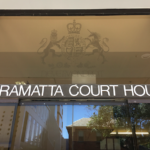Writing an Apology Letter to Court

Is your next court date a sentence hearing?
You may have just pled guilty to an offence, or been found guilty of an offence.
Waiting to know what penalty may be imposed for your offence can be a stressful time.
It is important to make good use of this time to prepare your case for the sentence hearing.
An apology letter to court is one way the judge can hear what sense you have made of your offence, and whether or not you acknowledge it and its consequences, and are remorseful for your actions.
This can ultimately help to reduce the penalty you face.
Aggravating and mitigating factors on sentence
At sentence hearings, the court is required to consider the nature of the offence, its seriousness and the impact of the offending on the victim.
A victim impact statement may be submitted at court in many cases, so that the judge has a full appreciation of the consequences of the offence on their life.
Also, a judge is required to consider any aggravating factors of the crime, such as if the offence involved the use of a weapon, or was targeted as a racially motivated act of violence.
Such factors aggravate the nature of the crime, and you can face a higher penalty.
Equally, the court must consider any mitigating factors of the offence, such as an early guilty plea, your good character, if you are unlikely to re-offend, whether there are good prospects of rehabilitation, and if you show remorse by providing evidence that you have accepted responsibility for your actions, and by acknowledging any injury, loss or damage caused by your actions.
These mitigating factors will ultimately reduce any penalty that may have been imposed because it demonstrates to the judge there is less of a need to deter the behaviour in your case.
The impact of an apology letter to the court
An apology letter to the court can explain the mitigating circumstances, and your remorse for your actions as a result.
An apology letter is your opportunity to set out for the judge what you were going through at the time of the offence.
It may explain the reasons for your offending (while not excusing it). Perhaps you had recently dealt with a very stressful event, and you took to illicit drugs or alcohol to deal with it.
Additionally, a judge can get a better sense of your character by what you write.
An apology letter can suggest that you made good use of the time between a guilty plea being entered and sentencing, and reflected on matters in a rehabilitative way.
The content of an apology letter to court
If you are intending on submitting an apology letter, that letter may:
- Set out that you have accepted responsibility for your actions and perhaps gives examples of how, such as attending rehabilitation meetings or conciliation conferences.
- Acknowledge any injury, loss or damage caused by the offence. Again, don’t simply state that you acknowledge the injury, but perhaps give examples of how you have done so. For instance, you might have compensated the victim in some monetary way, or perhaps you have met with the victim since and openly acknowledged the damage you caused them, or perhaps items taken have been returned.
- Show your appreciation of the court’s time and resources. For example, if you went to trial, an apology letter can canvass why you went to trial, but also that you appreciated the court spending time on a trial compared to the quicker process of pleading guilty.
Ultimately, you want to show the court that you are more than the person who committed the crime.
An apology letter to the court is a powerful tool to set out for the judge how you feel about the crime, what type of person you in fact are, and whether you are likely to commit such an act again.
This can make a significant difference to the ultimate outcome of your case.






